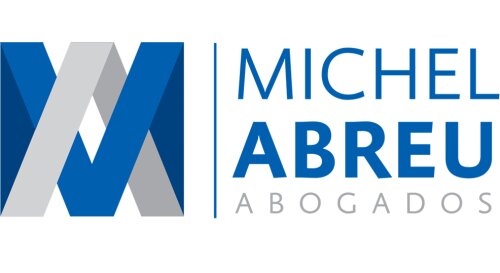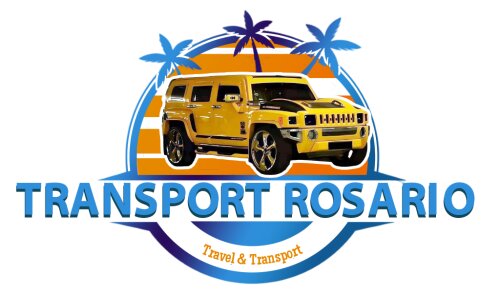Best Citizenship Lawyers in Punta Cana
Share your needs with us, get contacted by law firms.
Free. Takes 2 min.
List of the best lawyers in Punta Cana, Dominican Republic
About Citizenship Law in Punta Cana, Dominican Republic
Punta Cana, located in the eastern part of the Dominican Republic, aligns with the country's overall citizenship laws. Dominican citizenship is governed by principles set out in the nation's constitution and enacted laws. There are various paths to acquiring citizenship, including by birth (jus soli), by descent (jus sanguinis), through marriage to a Dominican citizen, or through naturalization. The region's legal framework is conducive to those seeking to become citizens, which can provide various benefits such as the right to reside, work, and partake in the nation's democratic process.
Why You May Need a Lawyer
Consulting a lawyer can be particularly beneficial in several situations related to citizenship:
- If you are applying for naturalization and need guidance to understand the process and fulfill necessary requirements.
- If you are facing legal challenges regarding your citizenship status that need to be resolved.
- If you need assistance with obtaining documents such as birth certificates, which are critical for citizenship applications.
- If you are planning to marry a Dominican citizen and need to understand how that impacts your citizenship status.
- If you are dealing with issues of dual nationality and need to recognize potential conflicts in legal obligations.
Local Laws Overview
Key aspects of the local laws relevant to citizenship in Punta Cana, Dominican Republic include:
- Constitutional Provisions: The Dominican Constitution outlines the eligibility criteria for citizenship, focusing on descent and birthplace.
- Naturalization Requirements: The process for naturalization typically requires a significant period of residency in the country, a clean criminal record, and the ability to demonstrate integration into Dominican society.
- Marital Connections: Citizenship can be facilitated through marriage, provided certain criteria are met and the marriage is recognized by local laws.
- Birth Registration: Registering births is vital, especially for children born to foreign parents in the Dominican Republic, to ensure their citizenship rights.
Frequently Asked Questions
What are the main ways to acquire Dominican citizenship?
Citizenship can be acquired by birth within the country, descent from Dominican parents, marriage to a Dominican citizen, or through naturalization.
How long does the naturalization process take?
The naturalization process can take several years, as it requires a minimum residency period and various administrative processes to be completed.
Can children of foreigners born in Punta Cana become Dominican citizens?
Yes, children born in the Dominican Republic to foreign parents can acquire citizenship, but specific conditions must be met according to local law.
Does the Dominican Republic allow dual citizenship?
Yes, the Dominican Republic permits dual citizenship, though it's important to understand the implications regarding legal obligations in both countries.
What documents are necessary for a naturalization application?
Typical documents include a residency permit, birth certificate, police clearance, and proof of integration into Dominican society, among others.
Is it mandatory to speak Spanish to gain citizenship?
While not strictly mandatory, proficiency in Spanish is highly recommended as it aids in demonstrating societal integration, which is a key naturalization requirement.
How does marriage to a Dominican citizen affect my citizenship application?
Marriage can accelerate the process, but proof of a genuine relationship and compliance with legal requirements are essential.
Are there any fees associated with citizenship applications?
Yes, there are various fees for document processing, application submissions, and legal services which can vary over time.
Can I lose my Dominican citizenship?
Citizenship can be revoked under certain circumstances, such as fraud in the application process, so accuracy and honesty are crucial.
Where can I get help with my citizenship application?
Legal experts in immigration law, as well as governmental offices handling citizenship affairs, can provide assistance.
Additional Resources
For further guidance, consider reaching out to the following resources:
- Ministry of Interior and Police: This governmental body handles many aspects of citizenship and residency applications.
- Consulate or Embassy of your home country: Provides additional guidance on dual citizenship and legal obligations.
- Local Immigration Lawyers: Experts in local regulations can provide personalized assistance and ensure compliance with laws.
Next Steps
If you require legal assistance with citizenship matters in Punta Cana, consider taking the following steps:
- Consult with a legal expert specializing in Dominican immigration and citizenship law to review your specific situation.
- Gather all necessary documentation that might be required for your application or legal consultation.
- Contact the appropriate governmental offices to get official guidance or to initiate your application processes.
- Stay informed about any changes in the law that might affect your citizenship status or obligations.
Lawzana helps you find the best lawyers and law firms in Punta Cana through a curated and pre-screened list of qualified legal professionals. Our platform offers rankings and detailed profiles of attorneys and law firms, allowing you to compare based on practice areas, including Citizenship, experience, and client feedback.
Each profile includes a description of the firm's areas of practice, client reviews, team members and partners, year of establishment, spoken languages, office locations, contact information, social media presence, and any published articles or resources. Most firms on our platform speak English and are experienced in both local and international legal matters.
Get a quote from top-rated law firms in Punta Cana, Dominican Republic — quickly, securely, and without unnecessary hassle.
Disclaimer:
The information provided on this page is for general informational purposes only and does not constitute legal advice. While we strive to ensure the accuracy and relevance of the content, legal information may change over time, and interpretations of the law can vary. You should always consult with a qualified legal professional for advice specific to your situation.
We disclaim all liability for actions taken or not taken based on the content of this page. If you believe any information is incorrect or outdated, please contact us, and we will review and update it where appropriate.









